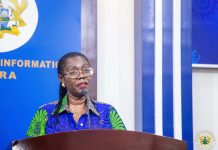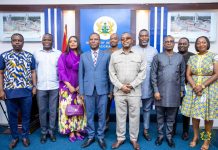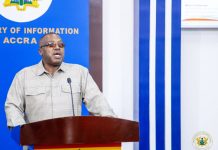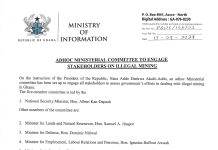Stakeholders in the broadcasting industry have agreed to work in close ties to clamp down unethical broadcast content and regulate media excesses in the country.
They gave the assurance at a consultative forum organized by the Ministry of Information at Alisa hotel on Friday April 16, 2021 to dialogue on how to regulate content produced by the broadcast media in the country.
The forum which sought to galvanize solutions and take inputs from relevant stakeholders in the drafting of a comprehensive broadcasting bill in a manner consistent with the 1992 constitution.
The forum brought together stakeholders from the Ministries of Communication and Digitalization, Local Government, Decentralization and Rural Development, and Justice and Attorney-General’s Department. Other stakeholders included the National Media Commission (NMC), the National Communications Authority (NCA), the National Security Secretariat, the Bank of Ghana, the Ghana Independent Broadcasters Association (GIBA), the Ghana Journalists Association (GJA) the Media Foundation for West Africa (MFWA) and the Communication Select Committee of Parliament.
In a related development, Hon. Oppong Nkrumah at a press briefing on Sunday read out a communique detailing the outcome of the consultative meeting on the broadcasting bill.
According to the communique, stakeholders have agreed to work in close collaboration to tackle unethical media content.
“To address the question of unethical broadcast content, stakeholders agreed to set up a joint stakeholder group under the National Media Commission to examine reports of unethical content and invoke the powers of the National Communication Authority, to take punitive action against offending broadcasters,” stated in the communique.
In doing so, stakeholders will sign up to a Memorandum of Co-operation within 14 days of the meeting, formalizing arrangements for action by setting up a joint stakeholder group as a committee of the NMC in accordance with section 10 of the NMC Act, 1993 (ACT 449) to among other things monitor the broadcasting landscape, provide an early warning system for flagging unethical broadcast and recommend appropriate remedies to relevant regulatory bodies.
The communique noted that the engagement examined key issues being considered in the development of a broadcasting law for Ghana, stating that stakeholders have agreed to submit formal written memos on the bill to assist in the formulation of a final draft.

























